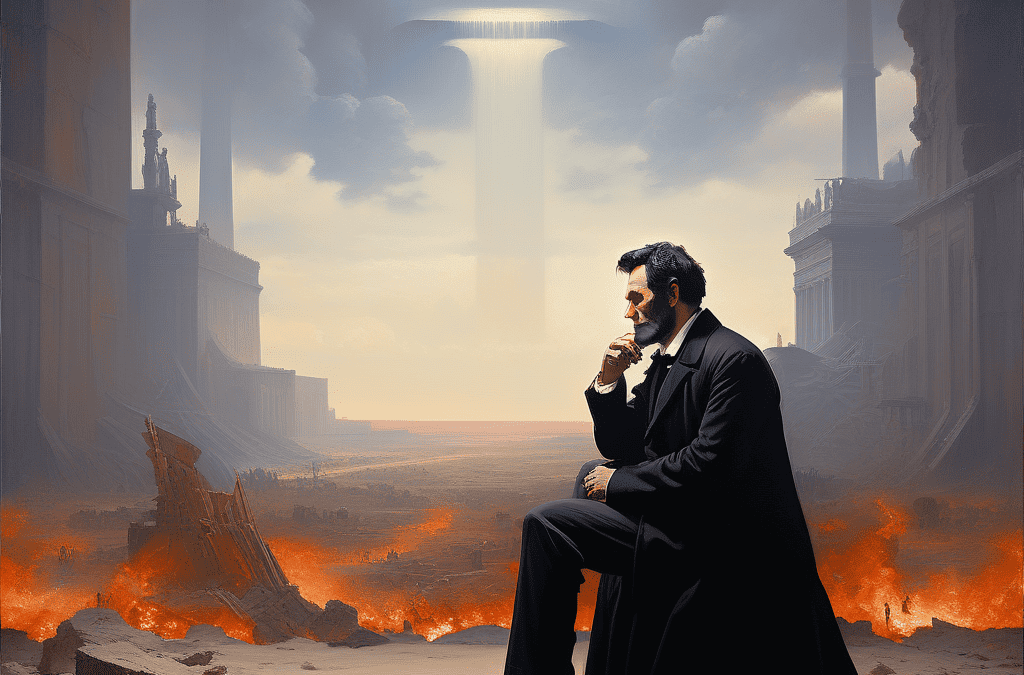
Unique words in history
Unique words in history
December 16 marked the 250th anniversary of the Boston Tea Party, when colonial Bostonians dressed as Mohawk Indians boarded three ships—Dartmouth, Eleanor, and Beaver—split open 340 chests filled with tea, and dumped their contents into Boston’s harbor.
This defiant act was directed as a protest against Parliament’s insistence that the consignees of the tea in the American colonies pay an import tax, to keep afloat the struggling British East India Company, which brought the tea to the colonists.
The colonists were angry. They paid taxes to their local colonial governments, but no elected officials from the colonies represented them in Parliament to vote or make laws there. “No taxation without representation,” was their rallying cry.
In 2009, the Tea Party Movement acquired their name from that historical event. This modern-day political party insisted upon lower taxes, a decelerating national debt, and reduced government spending, noble goals that were not in direct alignment with the colonists.
The political issue in 1773 did not exactly equal that in 2009, even though the modern-day participants claimed the same name.
On occasion, words from the history textbooks will resurface as code names for what is happening today, as a way of thinking upon an issue and grabbing attention.
Edward Muir, professor of history at Northwestern, and current president of the American Historical Association, pointed out this thought in two recent and short essays he wrote for the organization’s monthly magazine, “Perspectives on History,” in November and December.
In November, he pointed out the word “refuge” and its associated word “migration.”
He writes, “Much of history consists of narratives about people migrating to find a refuge, a safe place to survive, live, and prosper, to escape slavery, starvation, persecution.”
He lists examples. “The Biblical story tells how the ancient Israelites fled slavery in Egypt and found the Promised Land.” “The Mormons escaped from the murderous mobs in Missouri and Illinois and found refuge near the Great Salt Lake.”
He points to the Pilgrims, who found refuge near Plymouth rock on December 21, 1620, to escape England’s “Anglican establishment.” Then, “the Quaker and Baptist non-conformists” found refuge in Rhode Island some distance from Boston’s Puritans and their whips.
He mentions the Underground Railroad, a means for escaped slaves to find a refuge.
Muir then points out, “Migration and refuge are everywhere in American history.”
Yet, he cautions his readers, saying, “the narratives have blinded people about the plight of those already on the land of refuge. One group’s liberation story is another’s tale of loss.”
I liken it to a cue ball that strikes the striped and colored balls on a table causing them to scatter, or when one domino tips, the others tip also.
For example, the Cheyenne Indians’ original homeland was near the Great Lakes, in Minnesota, and Illinois, and yet once other tribes pushed from the east, they drove the Cheyennes westward, until they found a refuge on the Great Plains.
In the December issue, Muir focuses upon the word “Renaissance,” a word, he says, that “possesses a great emotive power even if most have barely a clue about its precise meaning.”
Movements, parties, and organizations appeal to that word, as a code name for a “rebirth,” something innovative and new but drawn from and discovered in the old. Its original meaning grew out of a rediscovery of the Greeks and Romans, their fascinating ideas and cultures.
I say that a re-examination and even adoption of the old is not always the best way forward, especially in the sciences, perhaps more so in philosophy, literature, and art.
Other words, sometimes overused, come to my mind: Restoration and Reconstruction.
Restoration refers to that diligent search into the past for an idea, lost long ago, and once found, brought forward into today, and claimed as a truth for all times.
Reconstruction refers to the North’s self-appointed obligation to reconfigure the former Confederate states into a new social order, one without slavery.
Tea Party, refuge and migration, Renaissance, Restoration, and Reconstruction are unique words. Handle them with care.
To my dear readers: A Merry Christmas and a Happy New Year to you and your family.




